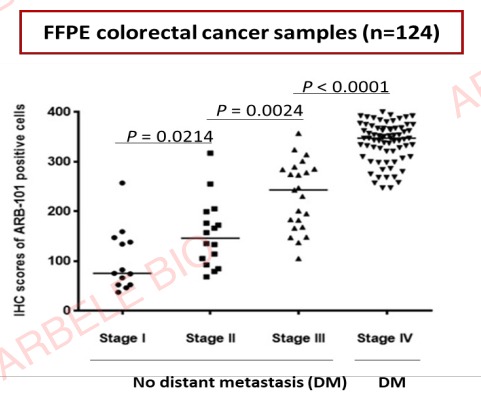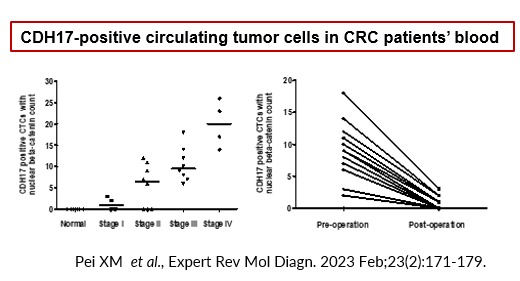Unlocking the Potential of CDH17
Learn more about the biological significance of CDH17 and its potential in targeting gastrointestinal cancers.



CDH17 is a cancer-specific and safe therapeutic target
CDH17, an oncofetal protein, emerges as an ideal candidate for cancer therapeutics due to its unique expression pattern. Typically elevated during embryonic development, CDH17 is suppressed in healthy adult tissues but reactivated in solid tumors like gastrointestinal, ovarian, cervical and neuroendocrine cancer cells. While normally confined to intestinal adherent junctions inaccessible to biologics in adult cells, CDH17 becomes exposed on the cell surface in cancerous cells due to loss of cell polarity. This characteristic makes it a highly promising target for cancer treatment.


CDH17 is Prognostic
Due to its high expression in malignant tissues and low or absent expression in normal tissues outside the gastrointestinal tract, CDH17 serves as an excellent biomarker for early detection, diagnosis, and monitoring of gastrointestinal cancers. CDH17 overexpression has also been shown to be clinically correlated with poor prognosis in patients with gastrointestinal cancers. Measuring CDH17 levels can help in assessing tumor burden and treatment response.


Arbele owns CDH17 target patent
Dr John Luk, our founder/CEO, has identified and patented CDH17 as a cancer target. Arbele proudly holds the exclusive patent rights for CDH17 as a therapeutic target and diagnostic marker in gastrointestinal cancers.
Find out more
